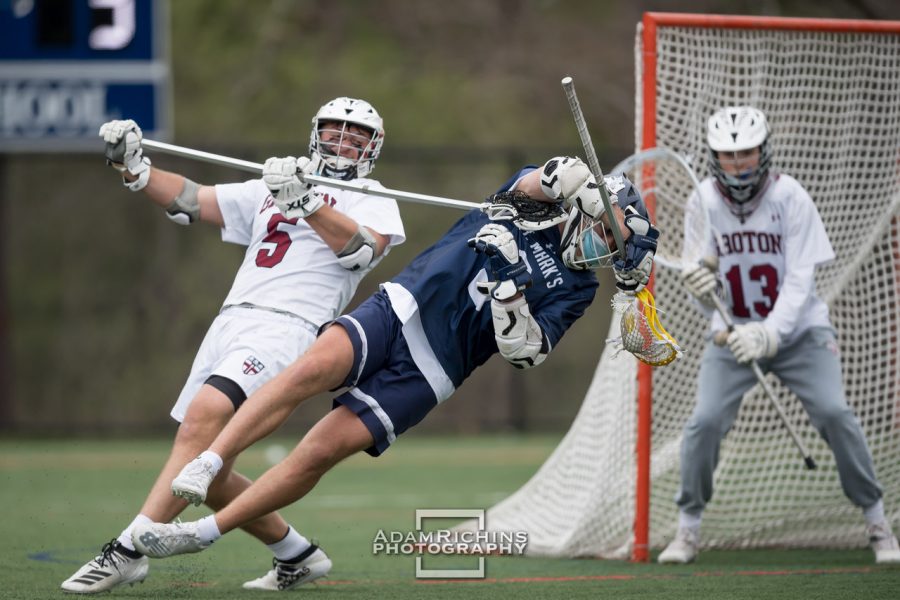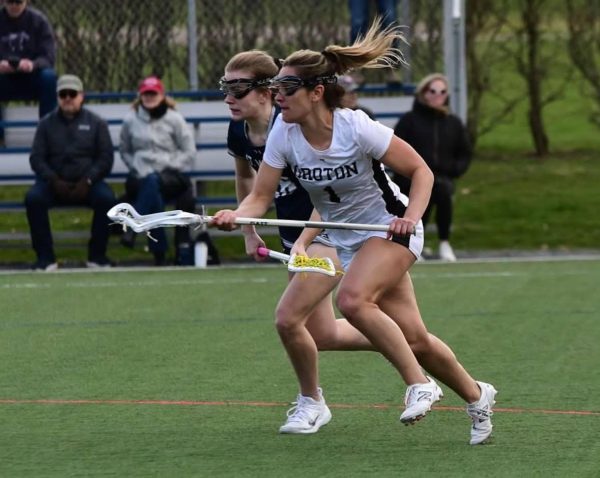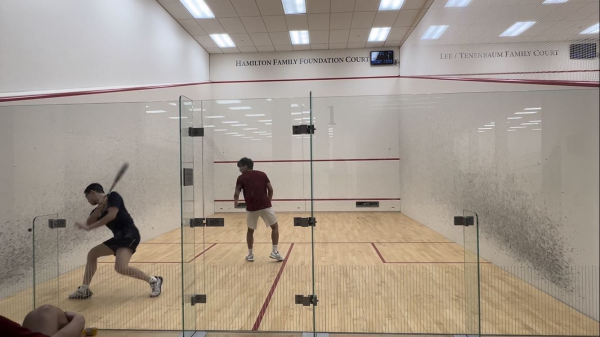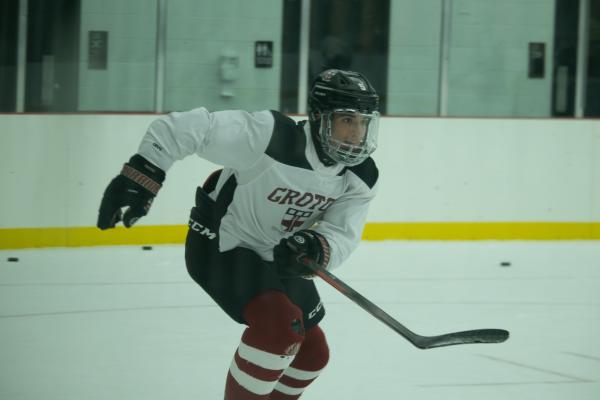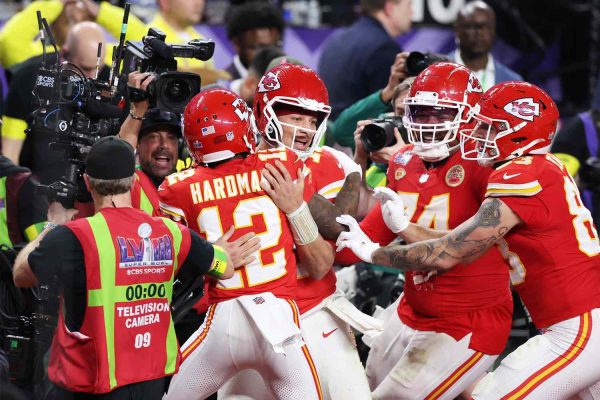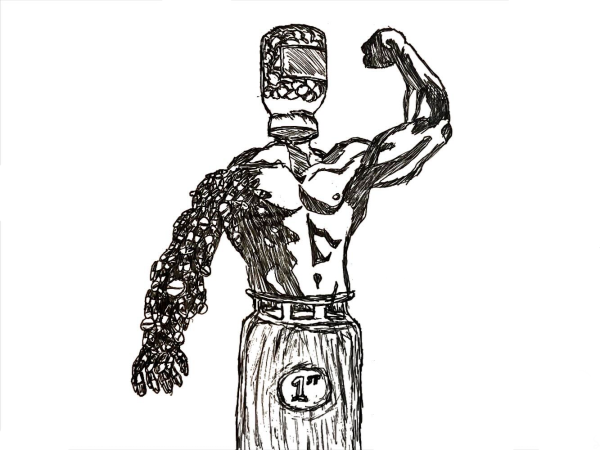Athlete of the Issue: Anthony Romano
Courtesy of Anthony Romano ’21
On the lacrosse field, Anthony Romano ’21 is a ferocious and skillful defender. In the weightroom, he is an inspiring and hardworking presence. To his teammates and classmates, Anthony is a natural leader and role model. Anthony’s biggest achievements include becoming a the 2021 Intercollegiate Men’s Lacrosse Coaches Association Tournament MVP, team captain, and most significantly, a Division 1 recruit for the University of Richmond. However, what makes Anthony Romano truly stand out is his immense discipline and strong sense of gratitude to those who have impacted him the most as a lacrosse player.
When did you start playing lacrosse?
In second grade I started playing lacrosse for my town team. My dad came home one day and told me he signed me up to play. I went with it and was excited to try it out. I actually played goalie in my first game. From there I kept playing town until I tried out for the New Hampshire Tomahawks. I started off as a middie, but then took up defense because I thought it was cool. I was pretty good at it, and from there I fully changed my position and became a full time close defender.
What is your fondest Groton lacrosse memory?
There have definitely been many over the years. I’ve been a part of five different teams here and each season has had its own special moments. The one that sticks out to me most, though, is our 8-6 win over Belmont Hill my sophomore year. We traveled down there on a Wednesday to face a really good team. They were confident and talked a lot of smack before the game. They had a chance to win the league that season. That game was the most complete game I’ve ever been a part of here at Groton. We battled the whole time. Our starters played lights out and other role players contributed in key ways. Pat Ryan ’19, our goalie, played arguably the best game of his career too. Bel Hill was stunned and we were so pumped. Tons of fans were there to see it too and some alumni of ours were at the game so it made it even more special to knock off a team of that caliber.
Which coaches have influenced you the most?
My Tomahawks coaches definitely influenced me a lot, as well as Coach Low and Coach Hefler here at Groton. The coach that made a huge impact on me when I was still really developing was Coach Salch who would always train me and my brother privately. We would often have our mom pick us up after she was done with work and take us over to a practice field where Coach would put us through drills and teach us new lessons. That helped me so much as I felt I had an extra step on teammates and opponents on gameday. Those were some great memories; it was hard work but he always made it fun. I still apply lessons he taught me to my game today.
How did Groton help you develop as a player?
I’d say the smaller team size has helped me as a player. We’re the smallest school in the league so we usually have the smallest team. As a result I was able to come in right away and start as an eighth grader. So in my first year I was covering eighteen- and nineteen-year-olds. It was tough but it made me such a better player from gaining that experience. I credit some of my captains especially Pat Ryan ’19 and Taggart Eymer ’17 for taking me under their wing and teaching me a lot more about the game and how to be a force on the field.
What is your favorite professional lacrosse team, and is there any player you admire?
I’d say the PLL (Premier Lacrosse League) teams I like the most are Redwoods and Cannons. When I was young the Cannons would play at Harvard Stadium so my family frequently went to games during the summer to watch them. I have a lot of great memories watching them, so I’d say they’re my overall favorite. I watch film on professional and college players to model my game after them. The players I watch the most include Matt Landis, Tucker Durkin, Mike Pellegrino, and Joe Fletcher. Those are great guys to study; they’re physical players who have great body positioning and footwork when playing on the field.
What role does family play in your career?
My family has done so much to help and support me throughout my lacrosse career. Playing for my travel team, the New Hampshire Tomahawks, was a huge commitment. Driving to practices multiple times a week and up and down the east coast for tournaments on the weekends was a big deal. My parents always willingly drove me and made sure I had enough food and water in between games. They would always come to every game and make sure we had hotels to stay in. My family also helped me a lot going through the college recruiting process. It was stressful having to email and call coaches. I faced rejection from schools I wanted to go visit and had to wait for the right opportunities to come. Coaches and schools don’t really care about your feelings in the process, you’re just another guy amongst a lot of recruits so you have to work hard to stick out. I needed to fight for myself and it was easier to do that knowing no matter what my family supported me and had my back. I owe it all to them.
What were some challenges you faced in the sport, and how did you overcome them?
I believe my whole career I’ve been underlooked and underappreciated. That’s nothing to get upset about, that’s just how it was; my game isn’t as flashy as some, and I’m shorter than a lot of defenders. I’ve always played with a chip on my shoulder because of this. And I appreciate that because without that I wouldn’t be the player I am. Before I made it to the Tomahawks team I play on today I only made reserves for two seasons, before I worked my way up to the “B” team. It took me a while to get to the main team, but from there I worked hard to not only be a part of that team, but be a leader on it.
I also had a challenging injury to overcome going into my sophomore season. I developed “snapping hips” from football season which was painful. In my hips it literally felt as if the muscle was popping and moving around, and I had that in both hips. I really appreciated Coach Mazz the JV basketball coach, because he let me take the winter off from basketball to rehab and get stronger in the weight room. I went to physical therapy and even got dry needling to help. I felt good going into the season, but the first day of preseason in Arizona I hurt my hips again. I didn’t know if I’d be able to play the season through this, but the thought of not playing in such a critical year after working so hard to get healthy didn’t sit with me. We were playing Gilman that night, a top team in the country so I forced myself to play through it. I played through it and the injury actually got better as I kept playing. I think I simply had to work out the kinks and it was the last hump to get over before I could play with comfort again. Playing through that definitely called on me to be mentally tough, which helped me grow as a player and person.
What life lessons have you learned from the sport?
I definitely learned from my injury what it takes to have discipline. That’s what I think I’ve been taught most from trying to be the best player I can be: discipline. It requires a lot of time to stretch, workout, eat smarter, and learn the game. That stuff is hard and it’s easy to put those things off and grow complacent. But if it was easy everyone would do it. I’ve had to ask myself many times throughout the years how bad I wanted it and what kind of player I wanted to be. I’ve taken that discipline into my studying and work routine as well. Studying and running, meeting with teachers and agility ladders are things we don’t want to do all the time, but if you want to be great it’s stuff you’ve gotta have the discipline to do anyways.
Any advice to current Groton lacrosse players?
I’d say the same thing I said in my chapel talk. Go the extra mile to be better. A lot of people who play sports here tend to do the minimum. And I do understand that sometimes we have to show up to practice a little late after meeting with a teacher or rush off quickly to study, but it should be emphasized more the importance of showing up early and staying to work after practice. Go to the weight room on a Saturday or run on the turf early in the morning. Do what others aren’t willing to do. Be disciplined.
Anything else you would like to add?
Thank you CV for this opportunity. And a special thank you to Coach Salch, for all he did for me. Rest in Peace Coach.


